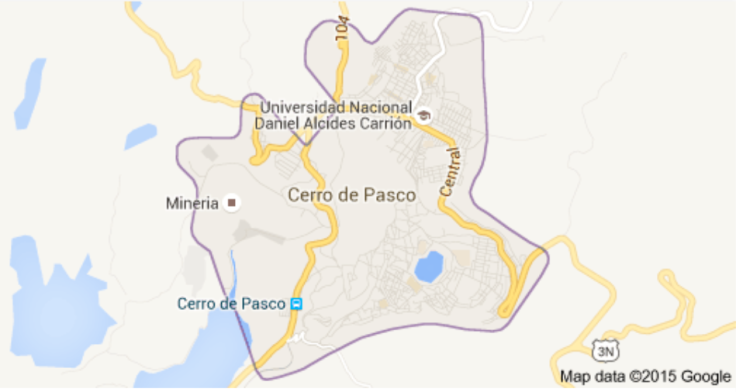
A Peruvian city that was once high up in the Andes is now slowly sinking into the abyss. 400 years ago, Cerro de Pasco, the first town in Peru to be liberated from the Spanish, was one of the richest cities in the country because of its rapid mining growth. The legend tells that in the 1800s, the rocks around campfires in town wept silver.
Unfortunately, a city that seemed to have it all has found an enemy in the entity that has been supporting it for all these years, the mine. Operated by Volcan Compañía Minera, the open-pit mine is creating a deep hole in the middle of the city and destroying its neighborhoods and most importantly, its people.
According to National Geographic, the locals were submitted to a series of health tests in 1996 when pollution effects became more prominent. In 2007, the U.S. Centers of Disease Control and Prevention (CDC) joined the investigation only to corroborate the fact that more than half the children tested had high lead levels in their blood stream. In May 2012, the Peruvian Ministry of Health declared a “state of environmental emergency” in Cerro de Pasco.
Nat Geo’s extended report illustrates the ill-fated situations these people are facing due to lead poisoning including lower IQ levels, diverse types of pain, seizures, organ dysfunction, and death. Locals have made attempts to reach out to the capital to find a solution, especially after 2,070 children were diagnosed with lead levels that implied twice the danger, but the government’s promise to build a new hospital never becomes a reality.
Volcan spokesman Jorge Leoncio Murillo Nuñez says that moving the town is not the company’s responsibility, “it is an issue that concerns the national government, in coordination with the regional government and the local government of the city.” The Peruvian government did not respond to requests for comment.
© 2025 Latin Times. All rights reserved. Do not reproduce without permission.





